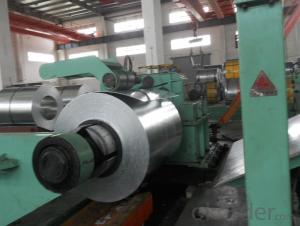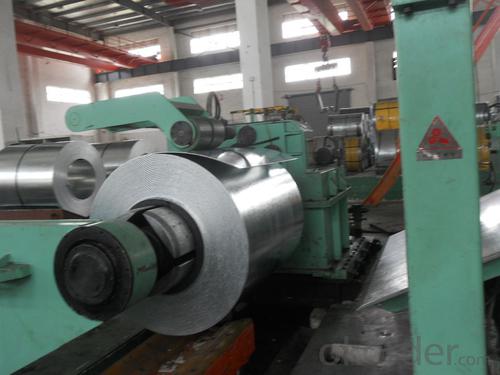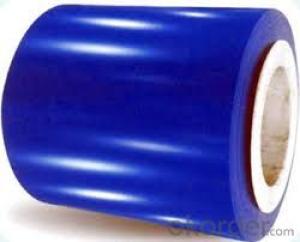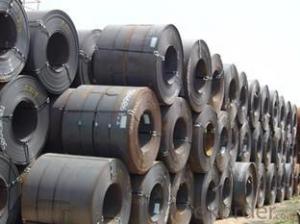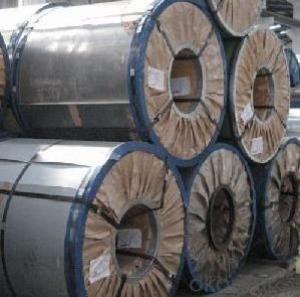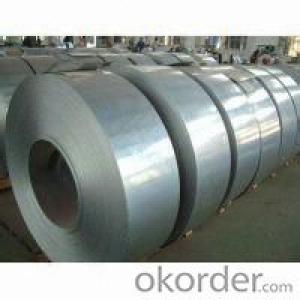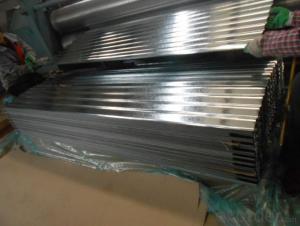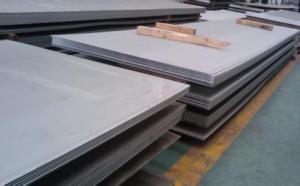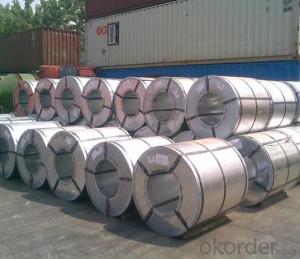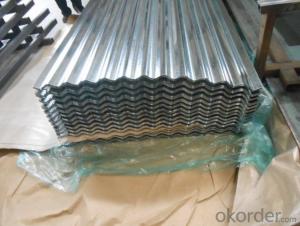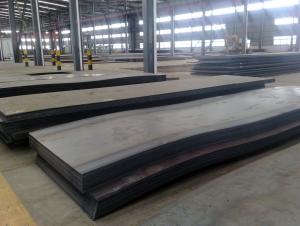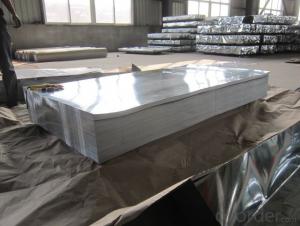Hot Rolled based Galvanzied Steel Sheet
- Loading Port:
- China Main Port
- Payment Terms:
- TT OR LC
- Min Order Qty:
- -
- Supply Capability:
- -
OKorder Service Pledge
OKorder Financial Service
You Might Also Like
HOT DIPPED GALVANIZED STEEL SHEETS
STEEL GRADE & STANDARD: JIS G3302 SGHC
ZINC COATING MASS: Z27
SPANGLE: REGULAR SPANGLE
SURFACE TREATMENT: CHROMATED, UNOILED, NONSKINPASSED
BUNDLE WEIGHT: 3MTS MAX
SIZE (MM) MOQ (MTS)
2.0*1250*2500 60
2.5*1250*2500 60
2.8*1250*2500 60
3.0*1250*2500 60
3.8*1250*2500 60
VALIDITY: 3 WORKING DAYS
PAYMENT: T/T WITH 20% DOWNPAYMENT AND BALANCE AGAINST INVOICE & PACKING LIST
CARGO READINESS: 50DAYS FOR MATERILA AFTER T/T 20% DOWNPAYMENT AND 15 DAYS FOR BOOKING VESSEL
- Q: Can steel sheets be used in the food processing industry?
- Yes, steel sheets can be used in the food processing industry. Steel is a highly versatile and durable material that is commonly used in various applications in the food processing industry. Steel sheets are often used for constructing equipment and machinery such as tables, work surfaces, shelves, cabinets, and containers. Steel sheets have several properties that make them suitable for use in the food processing industry. Firstly, steel is resistant to corrosion, which is essential in an environment where food and liquids are constantly present. This resistance to corrosion ensures that the steel sheets maintain their structural integrity and do not contaminate the food being processed. Secondly, steel is easy to clean and sanitize, which is crucial in maintaining high standards of hygiene in the food processing industry. Steel sheets can be easily wiped clean, and their smooth surface prevents the accumulation of dirt, bacteria, and other contaminants that could potentially affect the quality and safety of the food. Additionally, steel sheets are strong and can withstand heavy loads and physical impacts. This makes them suitable for use in equipment and machinery that handle large quantities of food or require frequent movement or transportation. Moreover, steel is a non-porous material, meaning that it does not absorb or retain odors, flavors, or stains from the food being processed. This property ensures that the steel sheets do not affect the taste or quality of the food. In conclusion, steel sheets are commonly used in the food processing industry due to their durability, resistance to corrosion, ease of cleaning, and non-porous nature. They provide a reliable and hygienic solution for constructing equipment and machinery that is essential for food processing operations.
- Q: What is the difference between a perforated and non-perforated steel sheet?
- The main difference between a perforated and non-perforated steel sheet lies in their respective designs and functionalities. A perforated steel sheet is characterized by having small holes or perforations evenly distributed throughout its surface. These holes can be of different shapes and sizes, depending on the specific application requirements. The primary purpose of a perforated steel sheet is to allow for the passage of air, light, sound, and liquids through the sheet, while still maintaining its structural integrity. This makes it highly suitable for applications where ventilation, filtration, or visibility is essential. Perforated steel sheets are commonly used in industries such as architecture, automotive, manufacturing, and construction, where they are employed for various purposes, including acoustic panels, protective barriers, decorative elements, and filter screens. On the other hand, a non-perforated steel sheet does not have any holes or perforations on its surface. It is a solid sheet of steel that is typically used for applications where strength, durability, and resistance to impact or abrasion are important factors. Non-perforated steel sheets are often utilized in structural engineering, machinery, shipbuilding, and heavy-duty equipment manufacturing, as they provide a solid and reliable surface for load-bearing and other demanding applications. In summary, the difference between a perforated and non-perforated steel sheet lies in their design and functionality. Perforated steel sheets have small holes throughout their surface, allowing for the passage of air, light, sound, and liquids, while non-perforated steel sheets are solid sheets without any holes, providing strength and durability for heavy-duty applications.
- Q: Are steel sheets suitable for swimming pool construction?
- Steel sheets are a great option for constructing swimming pools due to their strength and durability. They are well-known for their ability to withstand the weight of the water and the pressure applied to the pool walls, providing a stable and sturdy structure. Furthermore, steel sheets can be easily shaped and joined together in different sizes and forms, allowing for customized and flexible pool designs. In addition, steel is resistant to corrosion, which is essential for maintaining the pool's integrity, particularly when exposed to chlorinated water. This makes steel sheets a dependable and widely chosen material for swimming pool construction.
- Q: Are the steel sheets suitable for electrical applications?
- Indeed, steel sheets prove themselves to be fitting for electrical purposes. Being an excellent conductor of electricity, steel emerges as an optimal substance for a myriad of electrical components and applications. It finds utility in electrical enclosures, panels, cabinets, and other structures that accommodate electrical equipment. Moreover, steel sheets are frequently employed in grounding systems, electrical connectors, and electrical appliances. Furthermore, steel sheets offer sturdiness and safeguarding against environmental elements, including corrosion or fire, which hold paramount importance in electrical applications.
- Q: Are the steel sheets suitable for agricultural applications?
- Steel sheets are indeed suitable for agricultural applications. This is because steel is an adaptable and enduring material that can endure harsh weather conditions and offer long-term structural support. In agriculture, steel sheets can be utilized in numerous ways. They can be employed to construct farm buildings, barns, sheds, and storage facilities. Furthermore, they can be utilized for fencing, roofing, and siding. The strength and resistance to pests, fire, and rot that steel sheets provide make them perfect for safeguarding agricultural equipment and crops. Moreover, steel is recyclable, making it an environmentally-friendly choice for sustainable farming practices. All in all, steel sheets offer a dependable and cost-effective solution for diverse agricultural applications.
- Q: Can steel sheets be used for safety barriers or guardrails?
- Safety barriers or guardrails can indeed utilize steel sheets. The construction industry frequently employs steel sheets due to their robustness, durability, and ability to withstand impacts. These sheets can be molded into various forms, allowing for the creation of safety barriers or guardrails that effectively safeguard against accidents. Common applications of steel sheets in this context include road safety barriers, highway guardrails, and industrial safety barriers. Their purpose is to absorb the force of a collision, redirect the vehicle, and prevent it from crossing into oncoming traffic or hazardous zones. Moreover, steel sheets can be galvanized or coated to enhance their resistance to corrosion, making them suitable for outdoor usage in adverse weather conditions. In summary, steel sheets are widely chosen for safety barriers and guardrails due to their dependability and ability to provide protection.
- Q: Can steel sheets be used for architectural designs?
- Yes, steel sheets can be used for architectural designs. Steel sheets are versatile and have various aesthetic options, making them suitable for architectural applications such as wall cladding, roofing, and decorative elements. Additionally, steel sheets offer durability, strength, and a wide range of finishes, making them a popular choice for modern and contemporary architectural designs.
- Q: What is the difference between a galvanized and painted steel sheet?
- A galvanized steel sheet is coated with a layer of zinc, which provides protection against corrosion. On the other hand, a painted steel sheet is coated with a layer of paint, which provides aesthetic appeal and protection against weathering.
- Q: How do steel sheets handle impact resistance?
- Steel sheets are known for their exceptional impact resistance. Due to their high strength and toughness, steel sheets can effectively absorb and distribute the energy produced by an impact, minimizing the damage caused. This is primarily attributed to the microstructure of steel, which consists of a crystalline lattice that allows for the deformation and reformation of the material under stress. When subjected to an impact, steel sheets undergo plastic deformation, which enables them to absorb the energy and prevent it from propagating further. The ability of steel sheets to handle impact resistance is further enhanced by their composition, which often includes alloying elements such as manganese, chromium, and nickel. These elements increase the hardness and strength of the steel, making it even more resistant to deformation and fracture. As a result, steel sheets are widely used in various applications where impact resistance is crucial, including automotive manufacturing, construction, and heavy machinery industries.
- Q: Can the steel sheets be used for storage racks or shelves?
- Yes, steel sheets can be used for storage racks or shelves. Steel is a strong and durable material that can support heavy loads, making it ideal for storage purposes. Steel sheets can be cut and shaped to the desired size and can be easily welded or bolted together to create sturdy storage racks or shelves. Additionally, steel is resistant to corrosion and can withstand harsh environmental conditions, making it a suitable choice for both indoor and outdoor storage applications.
Send your message to us
Hot Rolled based Galvanzied Steel Sheet
- Loading Port:
- China Main Port
- Payment Terms:
- TT OR LC
- Min Order Qty:
- -
- Supply Capability:
- -
OKorder Service Pledge
OKorder Financial Service
Similar products
Hot products
Hot Searches
Related keywords
